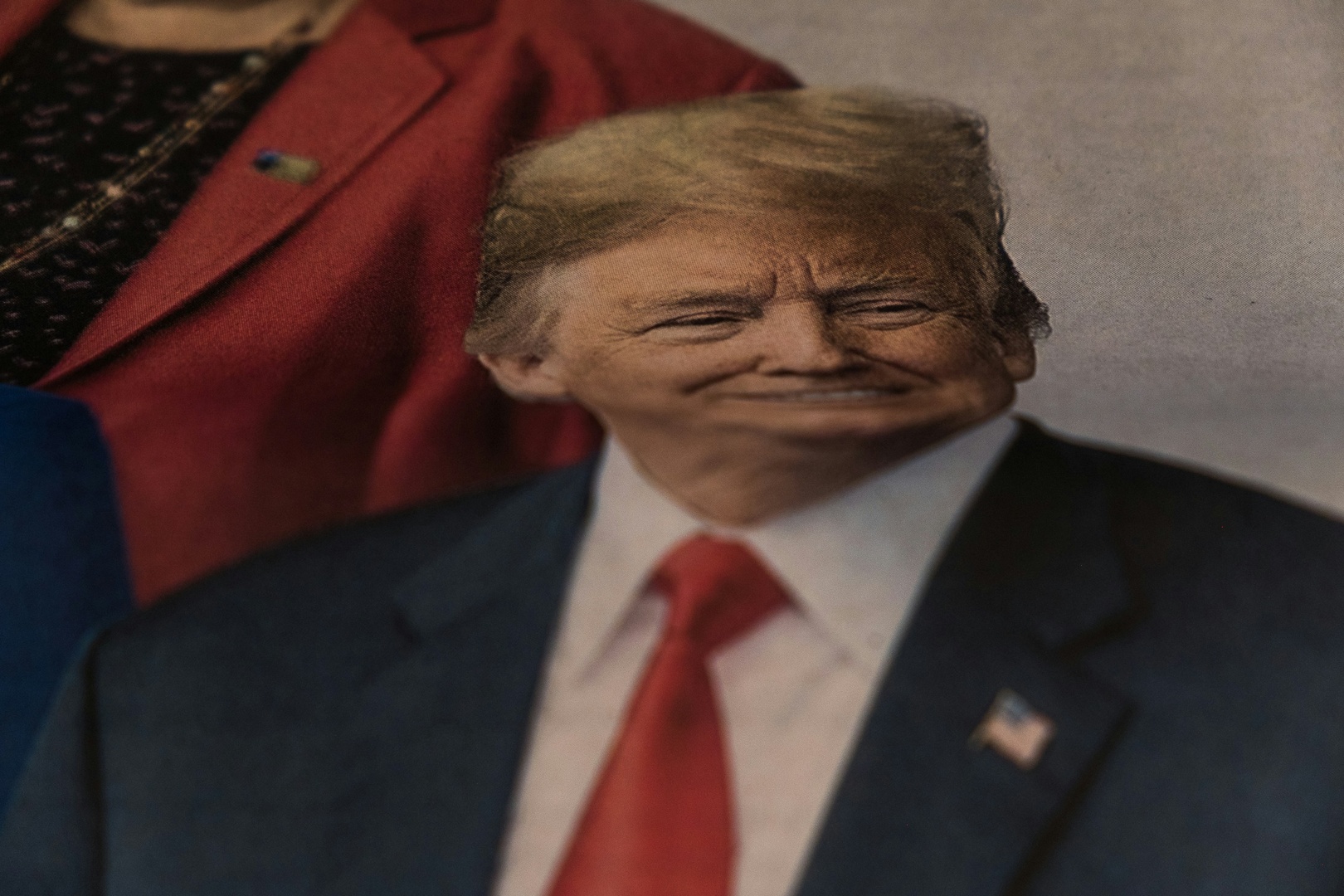“`json{ “seo_title”: “Trump’s 2025 AI Chip Policy Shift: How It Will Reshape the Global Tech Landscape”, “content”: “
Table of Contents
- Introduction
- Policy Reversal: A New Direction
- Understanding the Three-Tier System
- The New Approach Taking Shape
- Market Reaction and Industry Impact
- Global Winners and Losers
- Uncertainty Ahead
- Balancing Competing Priorities
- Future Outlook
- Key Takeaways
- FAQ
Introduction
The recent announcement from the Trump administration regarding the reversal of the Biden AI chip policy marks a pivotal moment in the landscape of global technology and trade. Set to take effect on May 15, 2025, this shift aims to dismantle a regulatory framework that many critics deemed overly complex and counterproductive to American innovation. As the world braces for this significant change, the implications stretch far beyond the borders of the United States, influencing international trade, innovation, and geopolitical relationships.
Policy Reversal: A New Direction
In a statement released by the Commerce Department, the Trump administration articulated its belief that the existing three-tier regulatory framework proposed by the Biden administration was fundamentally flawed. “The Biden AI rule is overly complex, overly bureaucratic, and would stymie American innovation,” a Commerce Department spokeswoman asserted in comments to Reuters. This sentiment echoes a broader philosophy that prioritizes simplicity and accessibility in technology policy, with the goal of securing American dominance in the rapidly evolving world of AI.
Understanding the Three-Tier System
The soon-to-be-reversed Biden regulation established a hierarchical structure for global access to advanced AI chips, segmented into three distinct tiers. The first tier included 17 allied nations plus Taiwan, which would have enjoyed unrestricted access to cutting-edge technologies. The second tier, comprising approximately 120 nations, would have faced strict numerical caps on imports. Finally, the third tier, which notably included China, Russia, Iran, and North Korea, would have been entirely barred from accessing these critical technologies. This stratified system was ostensibly designed to prevent the proliferation of advanced technologies to nations deemed hostile while still facilitating trade with allies and neutral countries. However, critics contended that the complexity of such a system would only serve to burden compliance, potentially pushing international partners toward alternative suppliers and creating an uneven playing field in the global tech marketplace.
The New Approach Taking Shape
In lieu of the tiered structure, sources cited by Reuters indicate that the Trump administration is contemplating a global licensing regime backed by inter-governmental agreements. This prospective approach promises increased flexibility while maintaining essential controls over sensitive technology. The timing of the announcement carries strategic significance, particularly as President Trump gears up for a diplomatic trip to the Middle East. Countries like Saudi Arabia and the United Arab Emirates have expressed palpable frustration over existing restrictions on AI chip acquisition, and the upcoming trip could serve as a platform for negotiating more favorable terms. Reports suggest that the Commerce Department may unveil this new policy as soon as Thursday, indicating a rapid shift in the regulatory landscape.
Market Reaction and Industry Impact
As news of the policy reversal broke, financial markets reacted quickly. Shares of Nvidia, a key player in the AI chip market, saw a 3% increase following the announcement, reflecting investor optimism regarding potential easing of restrictions. Despite this uptick, Nvidia experienced a slight dip of 0.7% in after-hours trading, highlighting the volatility and uncertainty that characterizes the market amidst regulatory changes. CEO Jensen Huang has long argued against the growing number of U.S. restrictions, envisioning China as a burgeoning market for AI chips, projected to reach $50 billion within a few years. Nevertheless, it’s crucial to note that the Trump administration’s new policy does not signify a total abandonment of export controls. In fact, the administration has already taken decisive action against China, banning Nvidia from selling its H20 chip there, a move that resulted in substantial financial repercussions for the company, amounting to $5.5 billion in writedowns, according to Bloomberg.
Global Winners and Losers
The implications of this policy reversal create a nuanced global map of potential winners and losers. Nations like India and Malaysia, which previously faced restrictions under the Biden administration, are likely to experience temporary relief. For Malaysia, this could translate into significant benefits for Oracle Corporation, which is poised to execute a massive data center expansion that would have been hampered by the previous regulatory limits. Concurrently, Middle Eastern nations such as the UAE and Saudi Arabia stand to gain substantially. These countries have been under chip export controls since 2023 and may soon find themselves in a position to negotiate better terms. Trump has specifically indicated an interest in easing restrictions for the UAE, potentially paving the way for a government-to-government AI chip agreement during his visit from May 13 to 16. The UAE’s aggressive pursuit of such agreements, bolstered by its commitment to invest up to $1.4 trillion in U.S. technology and infrastructure over the next decade, underscores the high stakes involved in these negotiations as nations strive to assert themselves as AI powerhouses.
Uncertainty Ahead
As the Trump administration formulates a new control scheme, the transition period introduces a veil of uncertainty for companies like Nvidia regarding the regulatory landscape they will navigate in the coming months. While the new framework is still in development, existing chip export controls will remain in force. Reports indicate that one potential element of the new approach may involve imposing stricter controls on countries that have diverted chips to China, including Malaysia and Thailand. This prospect raises concerns among industry stakeholders, who are divided on the issue. While chip manufacturers have lobbied against stringent export controls, AI firms like Anthropic advocate for maintaining protections that safeguard U.S. intellectual property and technological leadership.
Balancing Competing Priorities
The Biden administration’s export controls were crafted with the intent to limit access to chips critical for advanced AI development, particularly to thwart Chinese firms from finding indirect routes to acquire technology. Achieving a balanced approach that addresses national security concerns while simultaneously promoting U.S. commercial interests poses significant challenges. Negotiating agreements with various countries eager to procure advanced AI chips will require navigating intricate diplomatic relationships and possibly establishing multiple policy frameworks. The Commerce Department has not specified a timeline for when new rules will be finalized or implemented, indicating that deliberations are ongoing about the best way forward. The shift in Trump’s AI chip policy mirrors a broader emphasis on bolstering American competitiveness and innovation while still maintaining oversight of technologies with national security implications. As officials work to devise a replacement framework, the global AI chip market remains in a state of flux, carrying profound consequences for technological advancement, international relations, and corporate strategies in the ever-evolving landscape of artificial intelligence.
Future Outlook
Looking ahead, the Trump administration’s departure from the Biden framework sets the stage for a potential reshaping of the global AI chip market. This shift may favor a more collaborative approach among allied nations, enabling enhanced partnerships and trade agreements focused on technology transfer and joint innovation. However, the complexities of international relations and the ever-present specter of national security will continue to influence policy decisions. Industry analysts will be keenly watching how the proposed global licensing regime unfolds, particularly in relation to its effectiveness in safeguarding sensitive technologies while promoting U.S. innovation. The balance of power in AI technology will remain dynamic, with nations vying for a competitive edge in an increasingly interconnected world.
Key Takeaways
- The Trump administration’s reversal of the Biden AI chip policy signals a major shift in U.S. technology export strategy, focusing on simplicity and innovation.
- The Biden framework’s complex three-tier system, designed to control chip access based on geopolitical alignment, is set for dismantling.
- Financial markets responded positively to the announcement, particularly impacting shares of major chip manufacturers like Nvidia.
- Countries previously restricted, such as India and Malaysia, may benefit from the new policy, enabling increased access to advanced AI technologies.
- The Middle East, particularly the UAE and Saudi Arabia, is poised


